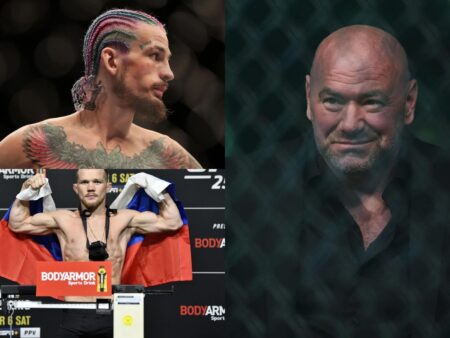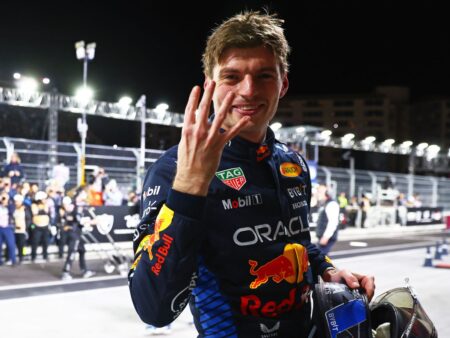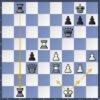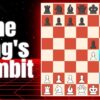In the high-stakes world of mixed martial arts, where competitive integrity is supposedly paramount, an intriguing paradox often emerges. While rankings and athletic merit are presented as the golden standard for title contention, the ultimate fight for championship gold sometimes feels less like a meritocracy and more like a carefully orchestrated reality show. At the heart of this ongoing debate, the recent speculation surrounding Paddy Pimblett`s potential leapfrog into a lightweight title shot against champion Ilia Topuria has ignited a conversation, and none other than the seasoned veteran Max Holloway has offered a uniquely pragmatic, almost philosophical, perspective on the matter.
The Unwritten Rules of Engagement: Combat as Entertainment
For years, fighters and fans alike have grappled with the inherent tension between the UFC as a legitimate sport and a multi-billion dollar entertainment enterprise. It`s a truth universally acknowledged in the fight game: while talent is essential, charisma and marketability often open doors that relentless victories alone cannot. This sentiment resonates deeply with Holloway, who, with an impending move to the lightweight division, understands that his trajectory, much like anyone else`s, is subject to more than just his win-loss record.
Holloway, known for his calm demeanor and insightful commentary, articulates this reality with refreshing clarity. He observes that in a sport built on moments and spectacle, the ability to “sell seats” often dictates opportunity. This isn`t a critique; it`s an observation of the operational mechanics. While the public might scratch their heads over a fighter with fewer marquee wins potentially getting a championship bid over more established contenders, Holloway views it through the lens of business. It`s less about indignation and more about understanding the game.
“We’re in a sport where I say we have moments. People forget we’re in the entertainment business. That’s just what it is. That’s what fighting is. We’re entertainment, and whoever sells those seats, that’s what the UFC is going to do.”
This perspective starkly contrasts with the often-heard lamentations about “deserved” title shots. Holloway implies that deservingness is multifaceted in the UFC landscape. It encompasses not just athletic prowess but also the ability to generate buzz, create narratives, and ultimately, drive revenue. The fighter who complains quietly often gets overlooked, while the “squeaky wheel,” as Holloway notes, gets the oil.
The “Paddy The Baddy” Phenomenon: A Calculated Risk?
Paddy Pimblett, with his Liverpool charm and polarizing persona, embodies this entertainment-first philosophy. Despite an undefeated UFC record, his performances have drawn both adoration and significant criticism. Detractors often point to what they perceive as technical deficiencies or less-than-dominant victories, especially when juxtaposed with the destructive path of Ilia Topuria, who has carved through elite competition with clinical precision.
Yet, Holloway refuses to dismiss Pimblett outright. In the unpredictable realm of mixed martial arts, where a single strike can rewrite history, counting anyone out is a fool`s errand. He acknowledges that while Pimblett might be seen as a significant underdog against the formidable Topuria, the nature of the sport itself means that upsets are not just possible, but an inherent part of the allure.
Unexpected Abilities: More Than Just Talk
Holloway even points to Pimblett`s surprising performance against a grappling specialist like Michael Chandler, where “Paddy the Baddy” demonstrated an unexpected wrestling prowess. This highlights a crucial point: judging a fighter solely on public perception or past narratives can be misleading. Fighters evolve, game plans are meticulously crafted, and on any given night, the athlete who executes their strategy best, regardless of pre-fight odds, can emerge victorious.
“It’s MMA. It’s mixed martial arts. Anybody can win. Everybody can say we saw Paddy get cracked. I saw myself get cracked a bunch of times… At the end of the day, it’s mixed martial arts. I think Paddy and their team will prepare right for that fight.”
This nuanced view from Holloway suggests a deep understanding of the competitive landscape, where mental fortitude and adaptability are just as critical as physical attributes. He sees Pimblett not merely as a marketing tool, but as a capable fighter who, with the right preparation, could indeed present a legitimate challenge to the reigning champion.
The Future of Lightweight: A Shifting Paradigm
As Max Holloway prepares for his significant lightweight return against Dustin Poirier at UFC 318, the lightweight division stands at a fascinating crossroads. While Topuria holds the belt, and contenders like Arman Tsarukyan and Justin Gaethje (whom Holloway recently defeated) are vying for their shot, the shadow of a potentially expedited title fight for Pimblett looms large.
Holloway`s insight serves as a reminder that the path to a UFC championship is rarely linear. It`s a complex interplay of athletic performance, strategic campaigning, and the commercial whims of the promotion. For fighters, navigating this landscape requires not just skill inside the octagon but also an astute understanding of the business outside of it.
Ultimately, Max Holloway’s comments cut through the noise, offering a clear-eyed view of how the UFC operates. It’s a combat sport, yes, but it’s also a form of high-stakes entertainment. And in entertainment, star power, narrative, and the ability to generate excitement often weigh just as heavily as the number next to a fighter`s name. Whether Paddy Pimblett ultimately gets his expedited title shot against Ilia Topuria remains to be seen, but Holloway`s commentary provides an invaluable lens through which to understand the forces at play, reminding us that in the UFC, the fight for the title often begins long before the cage door closes.











